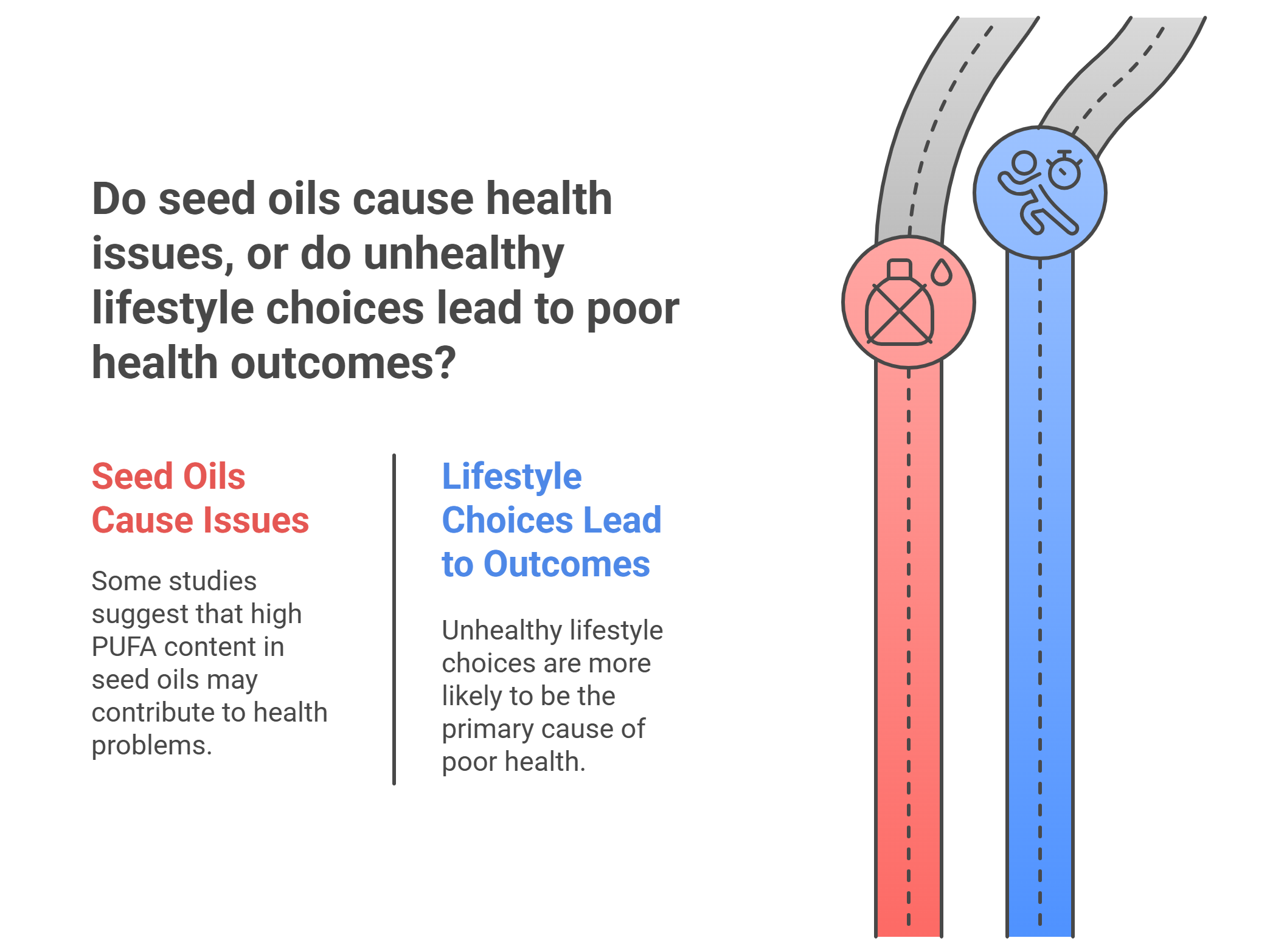
Are Seed Oils Causing Modern Diseases?
In recent discussions about nutrition, one question that continues to surface is whether seed oils could be the root cause of many chronic diseases prevalent today. With skyrocketing rates of obesity, type 2 diabetes, and heart disease, many are now questioning the health benefits of these widely used vegetable oils.
In Dr Chris Knobbe gets fact-checked by MD PhD Doctor | Seed oil & Disease, the discussion dives into the potential health risks of seed oils, exploring key insights that sparked deeper analysis on our end.
The Case Against Seed Oils
Dr. Chris Knobbe's viral talk proposes that excessive consumption of seed oils correlates with the rise in what he labels 'diseases of civilization.' The argument suggests that oils considered 'heart-healthy' may ironically contribute to heart disease and other chronic conditions like hypertension and obesity.
Historical Context: A Shift in Diet
To understand this discussion, one must consider how dietary habits have changed over the last century. In the 19th century, diabetes was rare, affecting less than 1% of the population. Today, nearly 10% of Americans have diabetes, and obesity rates have surged alongside it, indicating possible links between our dietary choices and these health issues.
Correlation vs. Causation
While some argue that there’s a correlation between rising seed oil consumption and rising heart disease rates, it’s crucial to note that correlation does not imply causation. Just because two trends appear linked does not mean one causes the other. Many factors, including increased intake of processed foods full of sugar and unhealthy fats, need to be considered.
Case Studies: The Masai and Tokelauans
Dr. Knobbe discusses traditional diets of populations like the Masai of Africa and Tokelauans. The Masai consume primarily animal products, showing low rates of heart disease, while the Tokelauans eat minimal seed oils and seem to maintain good health. However, it's important to recognize that these diets are not simply devoid of seed oils; they are also low in processed sugars and grains, which are significant contributors to modern health issues.
Scientific Evidence and Counterarguments
Numerous studies have suggested that diets high in polyunsaturated fatty acids (PUFAs), which include many seed oils, are linked to lower heart disease risk. For instance, one meta-analysis found that replacing saturated fats with PUFAs reduced the risk of cardiovascular events. The essential question remains: Do seed oils cause health issues, or do unhealthy lifestyle choices lead to poor health outcomes?

Changing Perspectives on Nutrition
This conversation about seed oils is crucial because it challenges long-held dietary recommendations. It emphasizes the importance of questioning established narratives surrounding nutrition and understanding that health is multifaceted. Consumers must become aware of the ingredients in their food and how those choices affect their health.
What Can You Do?
For those interested in improving their health, it helps to focus on whole, unprocessed foods, whether they include seed oils or not. While many health authorities advocate for the use of certain vegetable oils due to their perceived health benefits, individuals should also listen to their bodies and consider how different fats affect their well-being.
Next Steps to Healthier Choices
Ultimately, understanding how seed oils impact health requires further research and consideration. If you’re curious about how your diet might need to change, consult a healthcare professional who respects current nutritional science while helping you navigate your dietary preferences.
In conclusion, while discussions surrounding seed oils and their health implications continue, it’s important to approach this topic with an open mind and a focus on holistic well-being. Join the conversation and stay informed about how your dietary choices affect your health!
 Add Row
Add Row  Add
Add 




 Add Row
Add Row  Add
Add 

Write A Comment